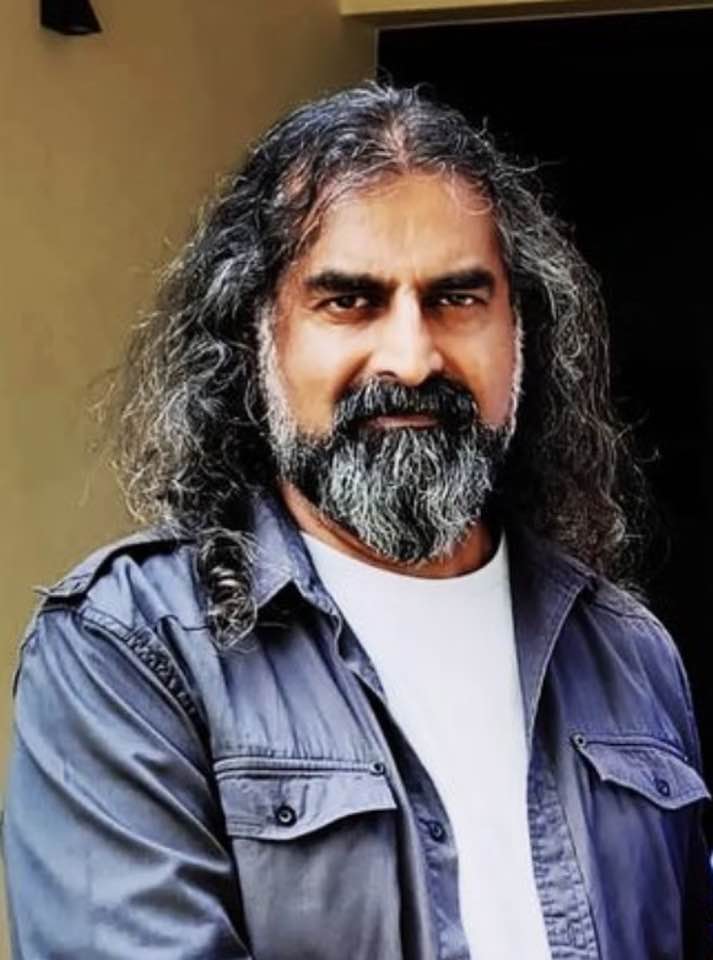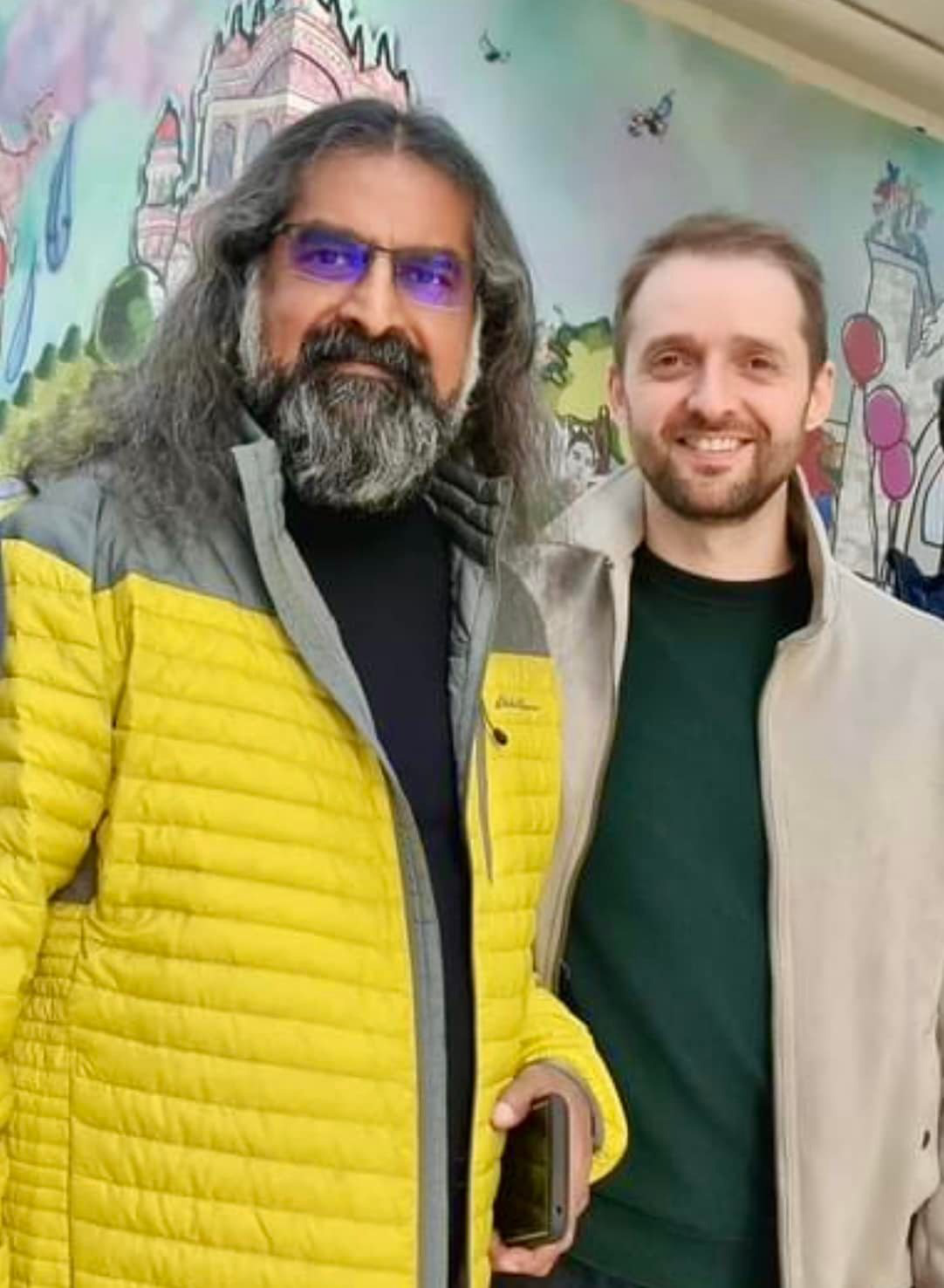by Christopher Greenwood
Day 181 – The World is a Big Cage
“The world is a big cage.” This is something that Mohanji said in conversation the other day that really stuck with me. He was referring to the limitations of the mind and his own journey, wherein he went beyond this, to find and touch silence and himself. I really like it when Mohanji speaks about these topics, because it always comes as a good reminder, especially when you’re caught up in many activities. The conversation brought back to me what he has shared before, about our existence in the world, in the waking state world, where really what we’re experiencing is only through our mind and senses. We see objects through our eyes, we can recognise the fragrance through our nose, we have a tongue that enjoys the habitual tastes which we’re accustomed to enjoying, and we feel the skin. Then our mind feels the emotions that we have. This is what we’re experiencing from the world.
Mainly it is habitual, pattern-driven, and for many people, it can also be unconscious. Mohanji made the point that because of this, and because of the limitations of the mind and senses, we are essentially trapped in a cage, imprisoned by these limitations. He extended this to the earth being just a larger extension of that prison. We can be happy going from one location to another, enjoying the various different sceneries, cultures, the different smells, and tastes. But in reality, we haven’t gone anywhere, is what he was saying in this conversation. We may have physically relocated somewhere, but inside we’re still carrying the same mind with its usual likes, dislikes, patterns, and fears. We carry that with us, along with all the junk which we’ve accumulated over lifetimes and this life. We will always be attracted to what we’re habituated to in life. For example, I know that even though I go to many different places, I always want to go to the same food. Not that I’m drinking coffee so much anymore, but I’ll go to the same coffee, even though there are many different options. For me, that’s always a small reminder of the patterns which exist.
I recognise this more now, as I used to travel a lot previously, in the days when I was searching for something more meaningful in life and I thought travel would bring this. I went to many places, but in the end, I recognized that regardless of where I went, I still had the same feelings inside. Now, being connected and living with Mohanji, for some time, I’ve noticed that these typical desires have begun to drop off, or if they haven’t gone away completely, then the intensity or the pull of them, to actually bring me into activity is reducing. That push into the world is much less, which means things become more quiet and clear.
The understanding which is coming now, hearing these messages again and then experiencing more quietness and less pull into the world, is that it’s helping me, in my way anyway, understand Mohanji’s simple teaching of “be you”, differently. It’s giving a different dimension to this now, because then if that’s the prison, if the world is the prison, my sense and my mind – everything which is pushing me out into the usual activity is the binding, then that’s definitely not me. So, what is “being you”? It can only be what’s beyond that; what’s actually running this, as Mohanji has said many times before. But I feel that sometimes it comes at the right time, with a different understanding and awareness, to actually begin to catch something more real. Being you isn’t being the identifications, the likes, the dislikes, or the mind and its senses, it’s something much more.

Day 182 – Unity or Separation?
A few days ago, I had a very interesting conversation with Mohanji, about unity and separation, or oneness and duality. What I share now is a mix of what Mohanji has shared with me and my understanding.
If you take consciousness as one, supreme consciousness exists as oneness, as pure brightness. There are then many forms of that consciousness, and there are also masters, avadhūtas, great beings, who are connected and immersed in that consciousness. For example, it’s been said before that Mohanji is an avadhūta and these are beings, people who are completely immersed inside themselves, immersed within God, within consciousness, fully supreme consciousness. In our tradition, the tradition of liberation, it’s guiding people on that path, liberating themselves from the bindings of identification of the mind of the senses, to connect with that oneness, to achieve and experience that unity.
In this path, the only real main criteria, is a consistent connection, to that being, that form that’s representing that state. For me and many of us following this path, that’s Mohanji, representing that state of supreme consciousness, so through connection, that’s how you achieve. It’s a representation, a living representation, of unity, of oneness. Using the analogy of plugging into this, so that you are connected; with Mohanji, I don’t feel as though you’re plugging into a house, or the transformer outside the house that’s giving the electricity. It’s the power plant directly, the source. For me, at least, that’s what it is.
He shared an interesting perspective about those who begin to criticise, judge, and even go as far as leaving, after once having been connected to him. It was interesting for me because I hadn’t thought about it in this way. If you take Mohanji as the representation of unity, of oneness, and that possibility, when you’re connecting with Mohanji, you’re connecting with that state. So, you begin to experience it. But then for people, if it’s not their agenda, not their path, or not their chosen destiny, to become one with oneness, but rather separation, duality, the world of illusions, then what will happen is they’re likely to leave because that’s not what they want. They want to experience more, take more lives. This is interesting for me because I always thought: “How can someone leave Mohanji, in that sense, because what he’s offering is so precious and special to me, as I understand it.” But this was a real fresh perspective, that it’s probably not their agenda, that they’re not interested at this time, in reaching that unity consciousness.
Then we spoke a little bit more, and we were talking about the signs, which can really show separation, both for people that you see and observe, and also what you can experience yourself. When there’s the beginning of criticism, comparison, conflict, or confusion, there’s a separation taking place. There are tell-tale signs that there’s a separation happening.
First, separation happens in the mind and then physically. So, when you say, “This person is like this,” in judgment, then you already created a separation: “I’m like this, they’re like that.” Then that’s a very simple, clear sign to show where people stand. For me, this is also a good lesson, because then in conversations and being with certain people, when you see these on display, people criticising, comparing, or being in conflict, it’s a sign that there’s a separation at play, or potentially, I wouldn’t say, what their agenda is, but that’s the operating state which they’re currently in.
I feel that anybody who is really striving for that unity, or to come closer, even if they have those comparisons, criticisms, or conflicts inside, they’ll be making an effort not to display them outwardly, because they know that it’s part of them, but that their path is to move beyond that. I feel that this can help in the company that we keep and our own state as well, because as soon as we start to have criticisms, conflicts and confusions, and if I start to judge or compare with somebody, then I know where I’m currently standing or where my thinking is at. So, it’s a good rule or benchmark.
Similarly, now it’s a new understanding that for those who would leave the path, it’s not a bad thing. It’s not something to be looked at as good or bad. It’s simply a recognition of their choice of one option: preferring separation over unity. This was an interesting thing for me to hear and understand.

|| JAI BRAHMARISHI MOHANJI ||
Edited & Published by – Testimonials Team, 18th December 2022
Disclaimer:
The views, opinions, and positions expressed by the authors and those providing comments on these blogs are theirs alone and do not necessarily reflect the views, opinions or positions of Mohanji, Mohanji Foundation, it’s members, employees or any other individual or entity associated with Mohanji or Mohanji Foundation. We make no representations as to accuracy, completeness, timeliness, suitability or validity of any information presented by individual authors and/or commenters on our blogs and will not be liable for any errors, omissions, or delays in this information or any losses, injuries or damages arising from its display or use.
We reserve the right to delete, edit, or alter in any manner we see fit blog entries or comments that we, in our sole discretion, deem to be obscene, offensive, defamatory, threatening, in violation of trademark, copyright or other laws, of an express commercial nature, or otherwise unacceptable.
Mohanji Testimonials team


